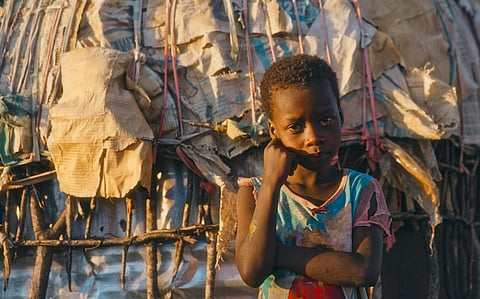

According to Amnesty International, government failures in tackling inequality, climate breakdown, and gender-based violence across Africa are putting future generations at risk. The UK-based human rights organisation also warned that the Trump administration's policies have accelerated a global erosion of human rights by undermining international protections, endangering billions worldwide.
These findings were published in Amnesty's annual report.
The State of the World's Human Rights 2024/25 released on April 29, 2025, examines human rights conditions in 150 countries while analysing global and regional trends.
The report documented unlawful attacks and killings by state forces and armed groups in numerous African nations, including Burkina Faso, Cameroon, the Central African Republic (CAR), the Democratic Republic of the Congo (DRC), Ethiopia, Mali, Mozambique, Niger, Nigeria, Somalia, South Sudan, and Sudan.
Disturbingly, conflict-related sexual violence saw a sharp rise, with over 11,000 cases of gender-based violence reported in CAR in just the first half of 2024. Similar patterns of sexual violence were prevalent in Somalia and South Sudan.
A worsening cost-of-living crisis compounded these challenges, as soaring prices for food, fuel, and basic necessities pushed millions deeper into poverty. High taxes, unsustainable debt, widespread corruption, ongoing conflicts, and extreme weather events further aggravated the situation. Food insecurity reached alarming levels, particularly in Southern Africa, where Angola, Botswana, Lesotho, Malawi, Namibia, Zambia, and Zimbabwe suffered their worst drought in a century due to El Niño.
Several governments declared states of emergency as crops failed and livestock perished, threatening famine. Severe hunger also persisted in CAR, Somalia, and South Sudan.
Conflict and climate disasters continued to displace millions, with Sudan remaining home to the world's largest displaced population. The DRC, Burkina Faso, South Sudan, Somalia, CAR, and Mali also saw massive internal displacement. Wealthy nations — the primary drivers of climate change — failed to provide sufficient funding for adaptation and loss mitigation, leaving vulnerable communities to endure prolonged droughts, floods, and extreme heat. In southern Madagascar, authorities neglected hundreds displaced by drought, denying them basic rights and humanitarian aid. South Sudan, meanwhile, lacked any meaningful policies to address climate risks despite facing severe threats.
Amnesty International criticised the short-sighted approach of some governments that secured climate funding while saddling their nations with unsustainable debt. The organisation called for a renewed commitment to human rights and international law, urging world leaders to reverse the current backsliding and protect vulnerable populations.